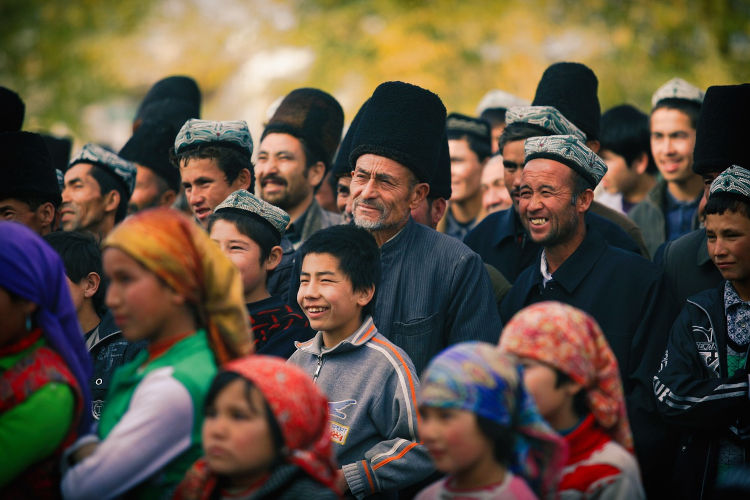Uyghur separatists claimed to be key player in Assad's fall
December 18, 2024
Wait, aren’t these the very same Uyghur separatists that the US State Department said they had “no credible evidence” existed, and that Mike Pompeo decided to remove from the US’s list of terrorist organisations in 2020?
How bizarre that this non-existent group were key players in Assad’s fall and are now aiming their gunsights on China…
Also could it then mean that the Chinese Government’s argument that it was fighting separatism in Xinjiang by self-described “mujahideens of East Turkistan” was not a mere “pretext for a crackdown” as the West argued (because as we all know “evil communists” just enjoy tormenting people for no particular reason, or so goes the narrative)? 😏
By the way, it is interesting to contrast China’s response to this challenge with Assad’s. Whilst Syria broke down in a full scale civil war, China did indeed operate a “crackdown” that involved identifying all the people in Xinjiang who empathised with this ideology and sending them to what it called “vocational education and training centres” (and what the West calls “re-education centres”), where they were basically given a choice: either re-integrate into society by learning a useful skill (hence the vocational education and training aspect) or you’ll be headed to prison next. They ran this program during approximately two years until December 2019.
At the same time, China spent a considerable amount of resources developing Xinjiang which saw its GDP per capita increase by 150% since 2011, whilst Syria’s own GDP per capita fell by a factor of five due to the civil war. They notably developed the tourism industry, transforming Xinjiang into one of the most visited Chinese provinces, with an astounding 265.44 million tourist visits in 2023 alone. Xinjiang’s GDP per capita (around US$10,469) is now higher than countries like Brazil, Thailand or Vietnam.
There are some very interesting lessons here, on all sides.
First of all, we’re seeing the outcomes of two approaches here: Assad’s and China’s.
Assad’s response to unrest ultimately led to a devastating civil war lasting 13 years, hundreds of thousands dead, more than half the country’s population displaced, and an economy in ruins – from being a middle-income country, Syria’s GDP per capita has fallen to a level that now ranks it among the world’s poorest nations. The end result? The very jihadist groups Assad sought to suppress ended up taking control anyway.
China, facing challenges from similar ideological movements, took a different approach. While obviously controversial internationally, their strategy combined strict security measures — including the vocational education centres mentioned above — with massive economic development. The results are telling: stability was maintained, no civil war erupted, and Xinjiang’s economy has grown substantially, with GDP per capita now exceeding several middle-income countries, and tourism flourishing.
Of course, the comparison isn’t entirely fair – Assad was leading a relatively small country with limited resources and vulnerable borders, while China is a global superpower with vast economic means and greater control over its territory. Also, Assad was fighting for his entire country’s survival rather than just one province. However, even with his limited resources, Assad’s inability to find an effective balance between security measures and development — particularly in the crucial early stages of the crisis — contributed to a devastating spiral of violence that proved unsustainable.
Secondly, this situation exposes the often dangerous naivety of Western “human rights” groups. What exactly did they wish would happen in Xinjiang? What should you do when you see one of your provinces being targeted by the same militant groups that just helped reduce Syria to rubble?
Looking at the outcomes, one has to wonder whether these “human rights” advocates ever seriously considered the human cost of what they were advocating The metrics that matter for actual human rights — people’s safety, their ability to live and work in peace, access to education, economic opportunities, freedom from violence — all point to the superiority of maintaining stability through development over allowing militant groups to operate freely. While China’s approach was heavily criticised internationally, it undeniably succeeded in preventing the kind of devastating conflict that has torn Syria apart.
Thirdly, this situation reveals yet again the often contradictory and hypocritical nature of Western foreign policy. The same militant groups can be labelled as “non-existent” or removed from terrorism lists when operating against geopolitical rivals, then suddenly become visible when operating elsewhere.
Even more tellingly, when China responded to this threat with a combination of security measures and economic development, it was condemned by the same Western powers that have conducted decades of military interventions, drone strikes, and indefinite detentions across multiple countries in the name of fighting terrorism – with far more devastating consequences for civilian populations. The hypocrisy is striking: apparently, it’s acceptable to kill and displace millions in the name of fighting terrorism, but attempting to prevent it through economic development and rehabilitation programs is somehow beyond the pale.
History will likely judge these different approaches not by their ideological purity or adherence to Western liberal ideals, but by their actual outcomes for the people involved. By that measure, the contrast between Syria’s descent into chaos and Xinjiang’s maintained stability and development tells its own story…
Lastly, Xinjiang is obviously not out of the woods yet, given the declared will by these “Uyghur fighters” to “come for China next” after what they’ve done to Syria. No doubt with the familiar parade of Western think-tanks and “human rights” NGOs explaining why they’re actually the good guys…
First published on X on 15 December 2024
